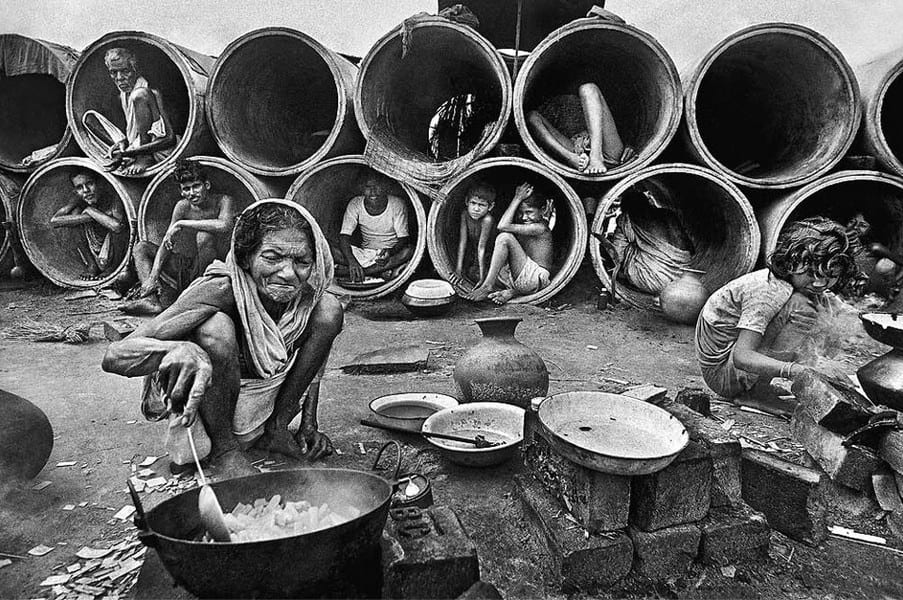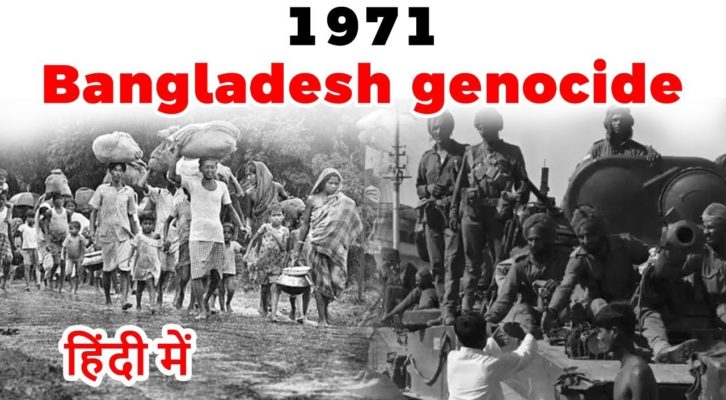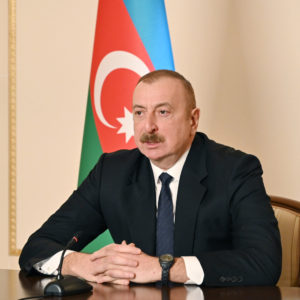“It is the most incredible, calculated thing since the days of the Nazis in Poland.” A US Official on Bangladeshi Genocide of 1971 (2011)
The 20th century has often been cited as the bloodiest century that the world has ever witnessed, with two World Wars and multiple instances of mass killings. As the ideals of liberty, equality, and fraternity (propounded during the French Revolution) came to be prized in the 21st century, it seems that the world has forgotten the past
As the world recovers from COVID and the countless repercussions that it has thrown our way, preserving human rights has, once again, become extremely important. Despite claims of them upholding the rule of law and respect for human rights, several nations today are still undertaking mass human rights violations and committing genocide, and carrying out ethnic cleansing. Thus, it wouldn’t be wrong to argue that the demons of our past have followed us into the 21st century.
With the anniversary of the Bangladesh Genocide of 1971 approaching on March 25, 2021, it would, perhaps, do us good to take lessons from this 50-year-old past. Taking decisions on the diplomatic front by learning from what happened then, shall reaffirm India’s stature in the world as a responsible power with a deep respect for human rights.

“Bengali Refugees 1971” photographed by Raghu Rai. Uploaded by মুক্তিযুদ্ধ ই-আর্কাইভ ট্রাস্ট. Creative Commons.
Bangladeshi Genocide: A History
The Partition of 1947 had given birth to three entities – India, Pakistan, and East Pakistan (now known as Bangladesh). With Jinnah at the helm of Pakistan, Urdu was declared as the official language for East Pakistan in 1948, even though only a small population spoke Urdu there. This led to the formation of a strong “Bengali language movement”. Subsequently, the Indo-Pak War of 1965 led to fears for East Pakistanis of being left unprotected, and hence, calls for self-determination started to peak. With the newly formed Awami League sweeping the first democratic elections held in 1970, Pakistan at the behest of President Yahya Khan declared martial law.
On the night of March 25, 1971, the Pakistani Army undertook what it then termed as “Operation Searchlight”. The operation aimed to grab control of the major cities of East Pakistan (now Bangladesh) and crush any opposition or dissent. Intellectuals, dissidents, minority groups, and students were systemically targeted in what is today widely termed as “genocide”.
Despite being a contested claim of genocide, various estimates put the number of deaths during the genocide between 300,000 to 1.5 million. Therefore, the contestation of the claim of the events of 1971 hardly matters, since the killings were carried out in a coordinated manner by the Pakistani military forces.
Torture, rape, killings, custodial deaths are some of the many grave human rights violations that were committed during this period. What we saw was the targeting of religious minorities, especially Hindus, who formed a significant minority in East Pakistan then. In a particular incident, the Ramna Kali Mandir was destroyed, and 85 Hindus were killed as a result. This is one of the many instances where minorities, including Hindus, were wiped out to crush the opposition. It was reported then that General Yahya Khan had stated that “kill three million of them, and the rest will eat out of our hands.” The Jatibhanga Massacre, the Chuknagar Massacre, and Shankharipara Massacre are a few examples of the cleansing of Bengali Hindus during that period at the hands of Pakistani forces.
The genocide ended once India entered the war directly and handed a decisive defeat to Pakistan, leading to the birth of what we now know as Bangladesh.
The Razakars: Using Rape As a Tool of War
Rape has most often been used as a tool of war. Women and children, since time immemorial, have been at the receiving end of the worst treatment at the hands of warring parties. However, the case of the Bangladesh Genocide is even more peculiar in this regard.
Razakar was a paramilitary organization that was formed during the 1971 War and served as a voluntary organization to help the Pakistani forces in their efforts to take control of East Pakistan in the face of opposition. It consisted of locals and volunteers from Pakistan who were trained and funded by the Pakistani Army. Under the leadership of Lieutenant Tikka Khan, cited as “the Butcher of Bengal”, the Razakars committed widespread rape, looting, and murders of the local population in direct violation of the UN Convention on Genocide, 1948. According to official estimates, 200,000 to 400,000 women were raped by the Pakistani Military and Razakars during this period in 1971.
It is even reported that Pakistani forces undertook the systemic rape of Bengali women to rear children fathered by Pakistani army men to wipe out the Bengali nationhood. As a result, the price of it was borne by women and children as the Pakistani military and the Razakars instilled fear by using rape as a tool of war to crush Bengalis.
India’s Hour for Human Rights Diplomacy: Building a Coalition
India has often prized itself for promoting a rules-based international order that upholds international law, especially in the realm of human rights. Since it was India that undertook the responsibility then to help Bangladesh gain freedom from the clutches of Pakistan, it is time for New Delhi to step up, yet again.
With countries like Pakistan, China, and Turkey undertaking grave human rights violations to undermine their citizens and minorities, India has time and again spoken up against such atrocities. However, the current times call for a recalibrated approach where we take lessons from the past to make sure such issues are highlighted on a global scale. New Delhi has already taken steps to expose the China-Pakistan-Turkey nexus, and this shall be a step forward.
India, being a strong diplomatic power, can take the initiative in the creation of a “coalition on genocides” that shall be responsible for lobbying efforts to recognize the events of Bangladesh in 1971 as a genocide. Despite academicians calling the same genocide, the issue has remained contested. Therefore, it is clear that the recognition will come only if persistent and continuous efforts are made on the diplomatic front.
Pakistan has time and again sought refuge in the arms of China and the Organization of Islamic Cooperation (OIC) to evade its responsibility. On the Bangladeshi Genocide’s 50th anniversary this year, India can make use of its diplomatic clout to make sure that Bangladesh’s efforts to recognize the events as genocide at the UN yield results. As India comes to the aid of Armenians in their fight against the Turkish genocide, time is ripe for India to form a “coalition on genocide” for Bangladesh’s pursuit of justice.
Bhavdeep Modi is a Research Manager at Red Lantern Analytica (New Delhi-based International Affairs Observer Group) and a postgraduate student of IR at JSIA, India.







